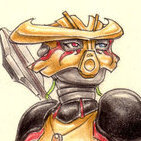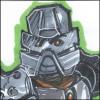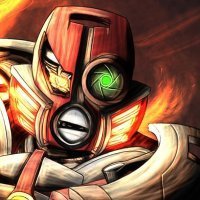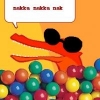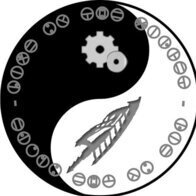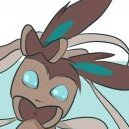Leaderboard
Popular Content
Showing content with the highest reputation on 03/07/2015 in all areas
-
For Bionifight Infinite, over in RPGs Zakaz is a Steampunk empire, ruled by elite, gold-spined Skakdi such as Lord Halken von Zakaz III Esq. (the character for which the Halkenverse [Working name] was named) Notably, the population has developed clothing and stylings similar to the victorian era. Xia is a computer nerd's paradise, having become a Cyberpunk monstrosity of a city, riddled with hackers, vaguely dystopian skyscrapers and megadvertisements, and people who look like they belong in the 90s. Notable inhabitants include Vinra. The only island to have access to multiversal programming. Voya Nui looks like apocalypse prepper's greatest fantasy: A charred, burnt out husk of an island, inhabited by roaming gangs of matoran and other sentient beings, warring over the precious few resources left over. Notably devoid of outside communications. Mahri Nui is filled to the brim with rum, gunpowder, and boisterous matoran pirates when they're not out raiding shipping lines in their pirate submarines. A good place to stop, leave your liver, and gain a wooden limb, if you're desperate. Metru Nui is easily distinguished from other islands from the cloud of smog that hangs over it at all times. The city is notably dieselpunk, from its gas-spewing dirigibles floating lazily through the black clouds, to its hot rod racing cars vomiting pitch colored clouds as they roar through the streets. Contrariwise, Mata Nui is an idyllic land, devoid of any technology more advanced than Bionicle 2001 was. Heatstones and Lightvines are extremely common fixtures amongst the peacesful, tribal folk of the island. Stelt is an island where good food isn't just a delicacy, it's a way of life. The populace of the island is all dedicated to one great pursuit: Cooking. Some say, on a hot day, you can smell the restaurants of Stelt from the Red Star. If you want to know what the Northern Continent is, picture Beseige. The entire continent is a never ending war of increasingly absurd seige engines, doing battle over sheep herds and giant lyres. Karda Nui is almost eerily quiet, compared to most other islands. If you look out over the land, you'll note that it is primarily filled with small, bamboo buildings filled with training av-toran, a large tribe of warriors shameless ripped from japanese martial arts. Not far from Karda Nui, one can hear the roars and cries of the various beasts of the biopunk land of Destral. Destral is rife with the Makuta, a race of genetic engineers. Ironic for beings made of gas and living in shape shifting armor, no? On the other end of the spectrum, Nynrah is a land of the atom. Not a single item on the entire island possesses a traditional power source, the matoran instead choosing to make Nuclear power sole focus. It would be concerning, if any other island understood their mad plans. Any other island suggestions (or better names for the universe) are welcomed. This list will be updated as more characters from the universe come into being, assuming any more do.3 points
-
Jeez, it's been ages since I last blogged. So although it's not my 4th brony anniversary until the end of the month, I've already got my new song cover ready ahead of time, so why don't I just go ahead and post it early: I know, I know, I said before that my next cover would be The Flim Flam Miracle Curative Tonic. I still fully intend to record that song to bookend my first cover, but this amazing song from the season 4 finale really just resonated with me and I had to record it first. Also, it's finally an excuse to record a song starring best pony. (I'll leave the question of "which one?" up to your personal interpretation) What do you think? ~ (A VTOAHMKEARH)3 points
-
2 points
-
Alternatively: The Wonderful World of Going Through Old Pictures I would say "presented out of context" but I don't even remember the context for this in the slightest.1 point
-
The Language of Okoto Chapter 10: An Okotoan Grammar [crosspost] We have reached the end, so let’s go out with a bang, shall we? All of the previous posts have been solely focused on breaking down the small dataset available to us and fleshing out the form and meaning of various words/lexical items, which is basically just vocabulary-building. But if we want Okotoan to be usable in any form, we’ve gotta mix in a bit of grammar at some point, right? Right. The time has come. Table of Contents: 1. Syntax 2. Verbs 3. Nouns 4. Other 5. Glossary 1. Syntax There are two primary rules of syntactic composition (and semantic interpretation) that apply very broadly in Okotoan, as follows: Rule 1. A modifying element placed before the element it modifies receives an indirect/abstract/non-physical interpretation, Rule 2. A modifying element placed after the element it modifies receives a direct/concrete/physical interpretation. A couple of specific applications of this rule to note: Subjects are positioned before the verb. This expresses the concept that subjects are in an indirect/abstract relation to the action of the verb, since subjects can express various concepts, including “causer”, “initiator”, or just “thing about which the verb expresses an action/property” (depending on the verb). Objects are positioned after the verb. This expresses the concept that objects are in a dirrect/concrete relation to the action of the verb, indicating the entity which is directly affected by that action. Taken together, this means that the primary word order of Okotoan is Subject – Verb – Object (SVO), very much like English (and a large number of other human languages). 2. Verbs Verbs are usually formed directly from basic stems (e.g. k- “to do, act”, e- “to originate, begin, exist”). A subclass of transitive verbs (verbs that require an object of some kind) is formed by the application of a marker -k (derived from k- “to do, act”; blatantly copied from Matoran -kha, which derives from kya “to do, act”). This can lead to related pairs of verbs such as e- “to originate, begin, exist” alongside ek- “to make smthg.; to cause to exist”. 2.1 Subject-marking Subjects of verbs are marked by suffixes added directly to the verbal stem, indicating the person/number of the subject. Each suffix has two forms, depending on whether the verb stem ends in a consonant or vowel: Singular: 1 -e (after consonants) OR -we (after vowels) = “I” 2 -i OR -wi = “you” 3 -a OR -wa = “she/he/it” Plural: Add the plural marker -to after the suffixes for 1st/2nd/3rd person. 2.1.1 Examples 1. ke “I act.” (= k- “to do, act” + -e “1st person”) 2. keto “We act.” (= k- + -e + -to “plural”) 3. ki “You act.” (= k- + -i “2nd person”) 4. kito “You all act.” 5. ka “She/he/it acts.” (= k- + -a “3rd person”) 6. kato “They act.” 7. owe “I exist.” (= o- “to exist, remain” + -we “1st person”) 8. owi “You exist.” (= o- + -wi “2nd person”) 9. owa “She/he/it exists.” (= o- + -wa “3rd person”) 10. Ekimu owa. “Ekimu exists.” Notes: - The 1st person marker comes from the stem e “making, originating” (the stem o “place, location, point” was also considered, but this would make the Okotoan 1st person marker identical to Matoran!). The 2nd person marker comes from the noun marker -i, which indicates animate individuals, a common implication of the 2nd person in general (you generally address speech to animate, rather than inanimate, things). The 3rd person marker comes from the noun marker -a, which indicates general nouns--things, objects, and people. - The suffix-variants with -w- that are used after vowels derive from the addition of the stem u “skill, ability”, which covers the semantic domain of “instrument”, as well as “perspective”. This sound was eventually lost after consonants. 2.2 Tense Tense is marked on verbs by prefixes added directly to the verbal stem, indicating present, past, and future tense. Each prefix has two forms, depending on whether the verbal stem begins in a consonant or vowel: Present: o- (before consonants), ok- (before vowels) Past: e- OR ek- Future: u- OR uk-, w- 4.2.1 Examples 1. Ekimu o-ka. “Ekimu acts.” 2. Ekimu e-ka. “Ekimu acted.” 3. Ekimu u-ka. “Ekimu will act.” 4. Mu ok-owa. “The mask exists.” 5. Mu ek-owa. “The mask existed” 6. Mu uk-owa. OR Mu w-owa. “The mask will exist.” Notes: - The present-marker comes from the stem o “place, location, point”, specifying “(current) temporal location”. The past-marker comes from the stem e “making, originating”, specifying “temporal origination”. The future-marker comes from the stem u “skill, ability”, via metaphorical extension from “ability” to “possibility”, and eventually to “temporal possibility; future”. - The prefix-variants with -k- that are used before vowels derive from the addition of the stem k- “action”, under the assumption that, at an older stage in the language, tense was marked by a second “placeholder” verb (k-) which then fused with the primary verb stem. - Interesting: We can construct an alternate etymology for the name Okoto using a verbal template instead of a nounal one. The complex ok-o-we-to would translate to “we exist/remain” (ok- “present tense”, -o- “to exist, remain”, -we- “first person”, -to “plural”), and according to basic assumptions about sound change, it would undergo eventual phonological reduction along the following lines: okoweto > okoueto > okouto > okoto. - Also interesting: An alternate etymology for the name of Ekimu presents itself. The sentence eki mu would translate to “you acted (with respect to) masks”, with eki deriving from e- “past tense” + k- “to do, act” + -i “2nd person”, plus an object mu “mask(s)”. 3. Nouns Nouns can be formed directly from basic stems (e.g. u “skill, ability”) as well as by the addition of derivative suffixes such as -a “general noun” and -i “animate noun”. Nouns can be marked for plural number via the suffix -to, which is attached directly to the noun-stem. Nouns can also be marked for possession by the addition of a set of independent markers for 1st, 2nd, and 3rd person possessors, which are placed before the noun which is possessed, expressing that the noun bears a concrete relation to the possessor. 1 we “mine” (pl. weto “ours”) 2 wi “yours” (pl. wito “yours”) 3 wa “hers/his/its” (pl. wato “theirs”) If the possessor is another noun (rather than just a pronoun), it is placed before wa, followed by the possessed noun: [possessor] + wa + [possessed]. Lastly, nouns can be marked to express various spatio-temporal properties (location, movement, instrumentality, etc.). These markers can be expressed as affixes (suffixes/prefixes) or as independent words (prepositions/postpositions), as desired. Since, in most cases, they express direct/concrete/physical relationships, it is suggested that these markers be placed after the nouns they modify (not an absolute rule!). o “in, at, on (position)” e “from, out of, before (origin, startpoint)” u “by, with (instrument)” mo “to, toward (endpoint)” (< m+o, lit. “completion+location”) omo “after, following; outside” (< o+mo, lit. “location+endpoint”) wo “through, via, across” (< u+o, lit. “instrument+location”) owo “during (process); like, as” (< o+wo, lit. “location+process”) 3.1 Examples: 1. eki-to “maker-s” 2. kuta-to “hoarder-s” 3. oko-to “land-s” 4. we oko “my land” 5. wi ta “your group/hoard” 6. wato mu “their mask” 7. Ekimu wa mu “Ekimu’s mask” 8. oko-o “in/at/on (the) land” 9. ta-e “from/out of (the) group/hoard/collection” 10. tu-u “by/with mastery” OR u-tu, because tu ends in a vowel 11. toa-mo “toward (the) master/hero” OR mo-toa 12. oko-omo “outside (the) land” 13. oko-wo “through/via/across (the) land” 14. e-owo “during (the) making” 15. wato oko-to mo “toward our land-s” Note: - Interesting: Example 3 above offers an interesting alternative etymology for the word Okoto; one that is appropriate, considering that Okoto is divided into multiple regions or “lands”. 4. Other 4.1 Expressing Negation Negation (i.e. “not”) is normally marked on verbs by the prefix um-, which is added before the prefixes marking tense. (This prefix is derived from a combination of the stems u “possibility” and m- “covering; completion”, yielding a sense of “completion” or “limitation” of possibility, i.e. “no possibility, negation”). Alternately, negation can be marked by addition of the independent morpheme uma “nothing, never” (< um-a “negation+thing”) placed before the verb. 4.1.1 Examples 1. Umeke “I did not act.” 2. Uma eke “I did not act. / I never acted.” 3. Makuta umokewa “Makuta does not originate/begin.” 4. Makuta uma okewa “Makuta does not originate/begin. / Makuta never originates/begins.” 4.2 Questions Two types of questions (“interrogatives”) can be formed: Yes/No-Questions (“Did you get the mask?”) and WH-Questions (“What did you get?” “Where did you get it?” “Who are you?”, etc.). - Yes/No-Questions are formed simply by the addition of rising intonation at the end of a sentence (similar to English, Spanish, and numerous other human languages). - WH-Questions are also formed via rising intonation, but coupled with a special set of interrogative (pro)nouns derived from the base-form at- (a combination of the stems a “thing, object, person” and t- “non-specificity”, hence “non-specific thing/object/person”). ata “who/what” atomo “where” atowo “when” atowe “why” atu “how” The element ata should be placed before or after the verb based on whether or not it corresponds to the subject or object. All of the other elements are adverbial in nature and can be placed basically anywhere in the sentence. 4.2.1 Examples 1. Ekimu eka? “Did Ekimu act?” (Yes/No-Q) 2. Ukeki mu? “Will you make the mask?” (Yes/No-Q. Verb = ek- “to make smthg.”) 3. Ata ekeka mu? “Who/what made the mask?” (WH-Q) 4. Ekimu ekeka ata? “What did Ekimu make?” (WH-Q) 5. Atomo Ekimu ekeka mu? “Where did Ekimu make the mask?” (WH-Q) 6. Ekimu ekeka mu atowo? “When did Ekimu make the mask?” (WH-Q) 7. Ekimu atu ekeka mu? “How did Ekimu make the mask?” (WH-Q) 4.3 Commands An imperative (command) is constructed by using the bare form of the stem, without any tense-marking, in combination with the 2nd person suffix -i. Negative imperatives are formed by adding either the negative prefix um- to the stem or by placing the independent negative element uma “nothing, never” before the verb. 4.3.1 Examples 1. Eki mu! “Make the mask!” 2. Ki! “Do it!” 3. Uma ki! “Don’t do it!” 4. Ewi! “Begin/originate!” 5. Umewi! “Don’t begin/originate!” 6. Owi! “Exist! / Be!” 4.4 Complex clauses 4.4.1 Coordinating Conjunctions These independent morphemes are used to join together elements of the same type (e.g. nouns with nouns, verbs with verbs, clauses with clauses) in a symmetrical fashion, such that both elements are independent (“coordinated”). omo “and, plus” (< o+mo, lit. “location+endpoint”) me “but, except” (< m+e, “separation, exception”, lit. “completion+origin”) ome “or” (< o+me, lit. “location+separation/exception”) we “for, because” (< u+e, lit. “instrument+origin”) 4.4.2 Subordinating Conjunctions These two morphemes are used to join together elements (usually clauses) in an asymmetrical fashion, such that one element is subordinate or dependent upon the other element. Respectively, they are used to turn a full clause into the object of a verb or into a modifier of a noun (a relative clause). mo “that” = Complementizer. This morpheme attaches to verbs, indicating that a following clause is the object (or “complement”) of said verb. ata “that” = Relativizer. This morpheme attaches to nouns, indicating that a following clause is a modifier of the noun. 4.4.3 Examples 1. Makuta omo Ekimu okowato ekimuto. “Makuta and Ekimu are Mask Makers.” 2. Ekimu okeka, me Makuta otaka. “Ekimu makes, but Makuta hoards.” 3. Okeki, ome otaki? “Do you make, or do you hoard?” 4. Makuta ekoka ekimu, we ekeka muto. “Makuta was a Mask Maker, for he made masks.” 5. Okike-mo Ekimu weka mu. “I want Ekimu to make the mask” (lit. “I want that Ekimu will make the mask.”) 6. Mu-ata Ekimu ekeka... “The mask that Ekimu made...” 7. Ekimu okika-mo Makuta uma weka mu. “Ekimu wants Makuta to not make the mask.” (lit. “Ekimu wants that Makuta will not make the mask.”) 5. Glossary: Basic Stems: Note: The meanings of these stems are slightly expanded from those outlined in Chapter 9, and a few additional stems have been added. a |stm.| “thing, object, person” e |stm.| “making, originating; origination; past” (< *i-) i |stm.| “animacy, intentionality” iu |stm.| “sensation, feeling, sight, knowledge” (< *i-u) k- |stm.| “acting, doing; action” ko |stm.| “solidity, solid-ness; ?ice” m- |stm.| “covering; completion; past” o |stm.| “location, place, point; specificity; existing, remaining; present” t- |stm.| “plurality, mass; non-specificity” u |stm.| “skill, ability; instrument, perspective; possibility, future” (< *p-) Affixes: -a |aff.| “general noun (thing, object, person)” -i |aff.| “animate noun” -k |aff.| “transitive verb (verb taking an object)” -o |aff.| “general adjective (property, attribute)” Nouns: ata |n.| “thing, object” ati |n.| “person, individual” ati-ota |n.| “community, society” atu |n.| “crafted object, product; (piece of) art” atuki |n.| “crafter, producer” (< *atukui) ea |n.| “beginning, start, origin” (< *eo-a) eki |n.| “maker” (< *ekui) eki-atu |n.| “crafter, artisan” ekimu |n.| “mask maker” (< *eki-mau) ga |n.| “liquid, non-solidity; variety, variability, change; activity, movement; water” (< *k-a) gali |n.| “(ocean) tide, current; cyclicity, reactivity; humor, comedy; lit. ‘generation of variability/change’” (< *ga-li, see le |n.|) ianu |n.| “darkness; blindness; lit. ‘restriction of sensation’” (< *iua-nu) iawo |n.| “light; sight, vision; lit. ‘endurance/unrestrictedness of sensation’” (< *iua-po) i(w)a “sensation, feeling; discovery, knowledge, understanding” (< *iua) ka |n.| “(an) act, deed” ki |n.| “agent, causer, actor” (< *kui) ko |n.| “solidity, solid (substance), rigidity; structure, arrangement; ice” (< *k-o) kopaka “snow-drift, blizzard; slickness, slipperiness; lit. ‘wandering/drifting of ice’” (< ko-paka) ku |n.| “action” ku-ata |n.| “tool, weapon; appendage (arm, leg, hand), manipulator; lit. ‘thing/object of action’” kuta |n.| “hoarder” (< *kuita) la |n.| “diffusor, generator; teacher, elder; seed; lit. ‘thing of dispersal/growth/generation’” (< *le-a) le |n.| “diffusion, dispersal, circulation; generation, growth; jungle, plant-life; air, wind; lit. ‘multiplicity of origins’” (< *te < *t-i) leo |n.| “(a) generation, stage, step, link; lit. ‘point of dispersal/growth/generation’” (< *lea-o) lewa |n.| “chaos; lit. ‘freedom of generation/growth’” (< *le-pa) ma |n.| “covering, mask” makuta |n.| “mask hoarder” (< *mau-kuta) moka |n.| “protection, safety” moko |n.| “house, building, roofed dwelling-place; lit. ‘solid/stable covered-location’” (< m-oko) mu |n.| “mask” (< *mau) nu |n.| “restriction, limitation, boundedness; earth, ground; rest, sleep, inactivity; ability/perspective related to covering” (< *m-p) o |n.| “place, location, point” oga |n.| “body of water; lake, pond” ogato |n.| “ocean, sea” oki |n.| “inhabitant, dweller” (< *okoi) oko |n.| “land, place, home, region” okoa |n.| “city, town” (< *okoua) okoto |n.| “great land/place/home” (< oko-to) oku |n.| “constructed landmark, monument, temple” (< *okou) ola |n.| “tree, plant” (< *ole-a) ole |n.| “forested area; group of trees/plants” oleto |n.| “jungle, forest” oma |n.| “end, finish, completion” (< *o-uma) oni |n.| “miner, delver, cave-dweller; hermit, meditator” (< *onu-i) onu |n.| “underground, below-ground; refuge, resting place” onua |n.| “underworld, the deep; silence, rest, meditation” (< *onui-a) onuto |n.| “cave-system, subterranean world” opo |n.| “above-ground, surface” opoto |n.| “plain(s), overworld” ota |n.| “network, system, arrangement, organization; team; lit. ‘group/collection of points’” (< *otoa) otaga |n.| “volcano” otagato |n.| “volcanic region” otaki |n.| “organizer, networker; lit. ‘agent of network/systems’” pa |n.| “possibility, potential; freedom, autonomy” (< *p-a) paka |n.| “wandering, drifting; journey” (< *paki-a) paki |n.| “wanderer, rogue; lit. ‘agent of possibility/autonomy’” po |n.| “endurance, fortitude, strength; stone, rock; lit. ‘existing/remaining related to ability/perspective’” (< *p-o) ta |n.| “hoard, group, collection” (< *toa) ta |n.| “plurality; expansion, proliferation, consumption; fire, burning; lit. ‘multiplicity of things/objects’” (< *t-a) taga |n.| “magma; lit. ‘liquid fire’” to |n.| “largeness, greatness” toa |n.| “master, hero” (< *toua) toa-ota |n.| “Toa Team; team of heroes/masters” (< ota-toa) tu |n.| “mastery; lit. ‘skill of greatness’” (< *tou) tu |n.| “versatility, adaptability, application, usefulness” (< *t-u) tua |n.| “tool, device, instrument, implement; lit. ‘versatile/useful object’” (< *tuoa ) tula |n.| “innovator, leader; lit. ‘teacher/elder of adaptability/versatility’ (< *tulea) tulaga |n.| “protector, preserver, caretaker; lit. ‘leader related to/against change/variability’” u |n.| “skill, ability; possibility” uma |n.| “nothing, absence” uwa |n.| “time” (< *upa) Verbs: Note: Because all verbs require the addition of prefixes and suffixes indicating tense and person/number, I have used the notation “-stem-” to distinguish verbs from other entries. -e- |v.| “to originate, begin, exist; to be (stative)” -ek- |v.| “to make/create smthg.” -ewo- |v.| “to go; lit. ‘to move away’” (see -wo-) -ga- |v.| “to vary, change; to flow” -i- |v.| “to intend, decide” -ik- |v.| “to cause, initiate” -iuk- |v.| to find, discover; to seek out; lit. ‘to know intentionally (abstract)’” (see -uk-) -k- |v.| “to do, act” -ki- |v.| “to want, wish, desire” -ku- |v.| “to change/become different, alternate, vary” -kuk- |v.| “to affect, influence, apply; to change smthg., manipulate” -le- |v.| “to disperse, spread, circulate; to generate, manifest” -lek- |v.| “to engender, spawn” -li- |v.| “to speak, say; to transmit, convey information” (see -le-) -m- |v.| “to complete, finish, establish” -m(i)k- |v.| “to stop smthg.; to end, cut off” -mowo- |v.| “to come; lit. ‘to move toward’” (see -wo-) -nu- |v.| “to restrict, limit; to rest, sleep” -o- |v.| “to be in/at location; to exist; to be (stative)” -ok- |v.| “to put/place smthg. (location); to locate, specify” -om- |v.| “to arrive; to end, finish, complete” -om(i)k- |v.| “to bring smthg.; lit. ‘to make arrive (with)’; to accomplish, achieve” -t- |v.| “to grow, increase, become larger” -tak- |v.| “to collect, group, amass, hoard” -uk- |v.| “to know, think; lit. ‘make possibility/perspective’” -uki- |v.| “to see, observe; lit. ‘to know intentionally (concrete)’” (see -uk-) -wo- |v.| “to move” Adjectives: eo |adj.| “first, initial” (< *eo-o, see ea |n.|) galo |adj.| “reactive; cyclic; humorous, comedic” go |adj.| “variable, changeable; flowing, watery” (< *gao, see ga |n.|) ko |adj.| “active, eventful” (< *k-o) ko(o) |adj.| “solid, stable, firm, concrete; frozen, icy” (< *ko-o) kopako |adj.| “slippery” lewo |adj.| “chaotic” lo |adj.| “dispersed; growing” (< *le-o) mo |adj.| “covered, separated; completed, finished; distant” no |adj.| “restful, sleepy” omo |adj.| “last, final” (< *oum-o, see oma |n.|) pako |adj.| “lost, direction-less” po |adj.| “above, over; unrestricted, free; resistant, strong” to |adj.| “great, large; plural, many” towo |adj.| “masterful, heroic; brave, courageous” (< *touo) wo |adj.| “skillful, competent, capable”1 point
-
As someone whose health is always fluctuating and never well, I can quite sympathize with your plight. Get well soon! MOOOOOOOOOOOOOOOOOOOOOOOM!1 point
-
1 point
-
Are you going to write another book about the remaining cast's adventures in other universes?1 point
-
I finally got to actually post; but I really liked the first chapter; so far doing pretty well! ^^1 point
-
Do you have any kind of story bible for this universe you've been keeping, or a set of rules for it or anything? Just for people who want to write about things in this universe is all. Also, how much backstory did you give everyone that never showed up in any of the epics? E: I meant that the backstory never showed up, not the folks who never appeared. Although you can answer it both ways if you want =p1 point
-
No, no. The next year of Bionicle will be snake robots, then the year after that it will be stone robots, then the year after that it will be robot robots. Then the snake robots will kind of make a reappareance but not really? We won't get ghosts until like 2020.1 point
-
1 point
-
1 point
-
It has rained all weekend and today (I have missed the rain and it reminds me of Portland!). The roof is leaking, but it's only leaking over my desk. Apparently this is an improvement from when they were in a tent on site and every time it rained they would have to sweep all the water out of the tent. I'm really glad I don't have to sweep water out of a tent, and instead just have to move my desk over a few feet and get another bucket when another leak starts. This is the minifig I use to check in at work, and I did a update to it. My coworkers approve: My thumb is doing really well. I've apparently set a new bar for worst workplace accident in the last few years, and am on par to the time a giant LEGO building fell off the moving truck when they were transporting it to LEGOLAND.1 point
-
You could say you've set a new standard for hard work. Who else works their thumbs off/into holes?1 point
-
1 point
-
Changed my location on my profile on most of my sites to "Escondido, California" today. We have an apartment, wifi, jobs, accounts with the local power company, etc. And now it's all verified on social media and message boards too. I guess we really do live here now.1 point
-
This is so dumb but I desperately want to go down to the Fashion Valley LEGO store and buy a few cheap sets and get some Hero Packs even though I already have dozens of those orange masks. I just want the stickers and I want the map and I just like getting the polybag. Curse the weird collector impulse.1 point
-
1 point
-
That's actually a good example of poor communication and how it can have negative impacts on a social level. I'm not sure how it works in other fields, but in foodservice two main issues that cause businesses to fail are location and poor management. I see both of these present here. A professor outside of a classroom no longer represents the institution he is meant to represent. Likewise people don't go to a park with education as their primary priority. They go for recreation and to unwind. Especially when one is on their free time, respect is not given, it is earned. Should the students be more open minded? Perhaps. Should the professor better communicate and represent himself instead of expecting people to listen right off the bat? Perhaps. I'm honestly not sure if this was meant to deliver a clear-cut message, but maybe I missed it.1 point
This leaderboard is set to New York/GMT-04:00







